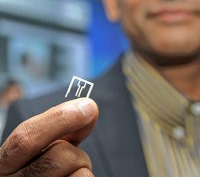Is Hachette Being Hoisted by Its Own DRM Petard?
 Rebecca Tushnet points to this column by Cory Doctorow arguing that Hachette is being held hostage in its fight with Amazon over e-book versions of its books because of its “single-minded insistence on DRM”: “It’s likely that every Hachette ebook ever sold has been locked with some company’s proprietary DRM, and therein lies the rub.” Doctorow argues that because of the DMCA Hachette can no longer get access, or authorize others to get access to, its own books:
Rebecca Tushnet points to this column by Cory Doctorow arguing that Hachette is being held hostage in its fight with Amazon over e-book versions of its books because of its “single-minded insistence on DRM”: “It’s likely that every Hachette ebook ever sold has been locked with some company’s proprietary DRM, and therein lies the rub.” Doctorow argues that because of the DMCA Hachette can no longer get access, or authorize others to get access to, its own books:
Under US law (the 1998 Digital Millennium Copyright Act) and its global counterparts (such as the EUCD), only the company that put the DRM on a copyrighted work can remove it. Although you can learn how to remove Amazon’s DRM with literally a single, three-word search, it is nevertheless illegal to do so, unless you’re Amazon. So while it’s technical child’s play to release a Hachette app that converts your Kindle library to work with Apple’s Ibooks or Google’s Play Store, such a move is illegal.
It is an own-goal masterstroke.
Everyone loves irony, but I can’t figure out how to make Doctorow’s argument work. First, I can’t figure out what the anticircumvention problem would be. Second, I can’t figure out why Hachette wouldn’t be able to provide other distributors with e-book versions of its books.

 The Aereo case was argued this morning, and before Paul Clement could even get rolling on his introduction on behalf of the broadcaster plaintiffs, Justice Sotomayor hit him with this:
The Aereo case was argued this morning, and before Paul Clement could even get rolling on his introduction on behalf of the broadcaster plaintiffs, Justice Sotomayor hit him with this: